Are you ready to rev up your career as an automotive technician? In this article, we'll explore the essential skills and experiences that hiring managers look for when filling these dynamic positions in the automotive industry. From mastering diagnostic tools to understanding the latest technology in vehicles, we've got you covered. So buckle up and read on to discover what it takes to stand out in this competitive field!

Professional qualifications and certifications
Professional automotive technicians possess a range of qualifications and certifications that demonstrate their expertise in vehicle maintenance and repair. Industry-recognized certifications such as ASE (Automotive Service Excellence) showcase proficiency in specific areas like engine repair, electrical systems, and drivetrain performance. ASE certifications require passing rigorous examinations and are valid for five years, ensuring technicians maintain current knowledge. Additionally, manufacturers such as Toyota, Ford, and General Motors offer specialized training programs for technicians to become certified in their vehicle models. These programs often involve hands-on experience and technical coursework, equipping technicians with skills tailored to brand-specific technologies. Maintaining familiarity with tools like diagnostic scanners and software enhances efficiency in troubleshooting complex automotive issues, a key component of effective vehicle servicing.
Relevant experience in automotive repair
Skilled automotive technicians play a crucial role in maintaining and repairing vehicles, ensuring safety and performance. Experience in automotive repair includes tasks such as diagnosing issues with engine performance, conducting routine maintenance like oil changes every 3,000 to 5,000 miles, and resolving complex electrical system failures, which can encompass both 12V and high voltage hybrid systems. Technicians often utilize diagnostic tools such as OBD-II scanners, essential for identifying trouble codes linked to emissions systems, and multimeters for testing voltage and continuity. Familiarity with various vehicle makes and models, such as Ford, Toyota, and Honda, enhances a technician's ability to troubleshoot effectively. Additionally, hands-on experience in replacing critical components like brakes, alternators, and spark plugs plays a significant part in restoring operational efficiency and reliability in vehicles, contributing to overall customer satisfaction in automotive service departments.
Key technical skills and competencies
Automotive technicians require a diverse set of essential technical skills and competencies to excel in their roles across various vehicle types. Proficiency in diagnostic tools such as OBD-II scanners enables technicians to identify engine-related issues swiftly. Knowledge of electronic control units (ECUs), which manage various vehicle functions, is critical for modern vehicles, including hybrids and electric cars. Familiarity with automotive repair software like AllData or Mitchell 1 enhances workflow efficiency and accuracy in repair documentation. Hands-on experience in areas such as engine repair, brake systems, electrical systems, and suspension diagnostics ensures safety and performance standards are met. Ongoing training initiatives, such as ASE certification programs, are crucial for staying updated with the latest technological advancements in automotive repair. Understanding of regulations from the Environmental Protection Agency (EPA) also impacts practices concerning emissions and waste management.
Alignment with company culture and values
Automotive technicians play a crucial role in maintaining vehicle safety and performance, contributing significantly to operational excellence in the automotive industry. Skilled technicians adhere to high standards of customer service, ensuring client satisfaction through effective communication and informative consultations. The technician's responsibility includes diagnosing mechanical issues using advanced diagnostic equipment, which incorporates technologies like OBD-II (On-Board Diagnostics) for comprehensive vehicle analysis. A technician should embody company values such as teamwork, integrity, and a commitment to continuous learning, which are vital in dynamic environments like repair shops. Alignment with these values fosters a cooperative atmosphere that enhances both individual and collective efficiency, ultimately leading to customer loyalty and business growth.
Availability for flexible work hours and locations
Automotive technicians possess specialized skills crucial for vehicle maintenance and repair, including diagnostics and troubleshooting of complex systems. These technicians often work in diverse environments such as automotive repair shops, dealerships, or fleet maintenance facilities, which may require adaptability to different work locations. Availability for flexible work hours is essential, particularly during peak seasons, such as summer road trips or winter weather preparations, where increased demand for services occurs. The role may involve working evenings or weekends to accommodate customer needs. Technicians must be prepared for both scheduled appointments and urgent repairs, ensuring they can manage a wide range of vehicles, from compact cars to heavy-duty trucks, often equipped with advanced technology such as hybrid or electric powertrains.

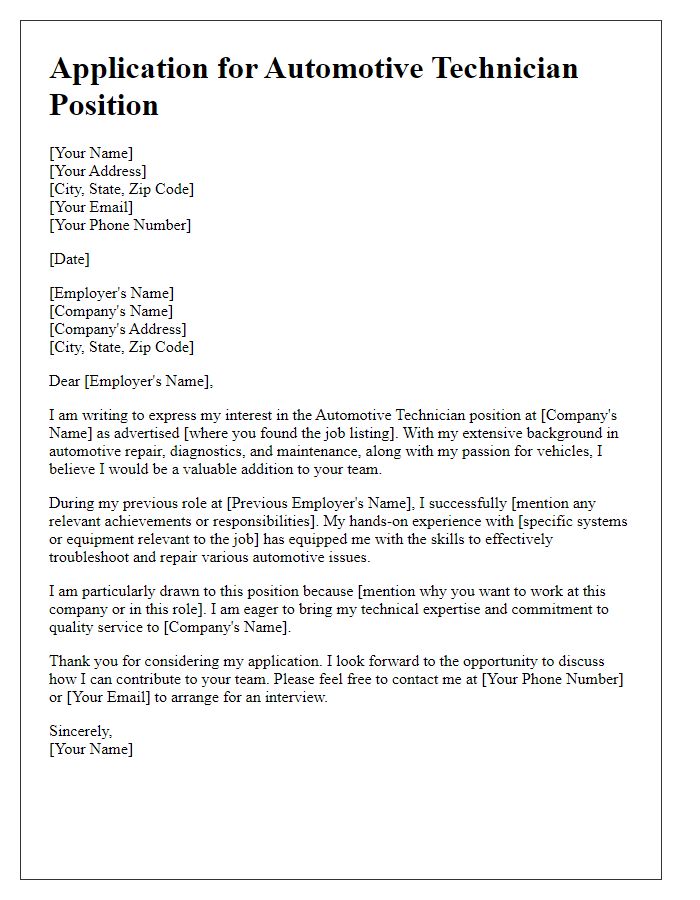
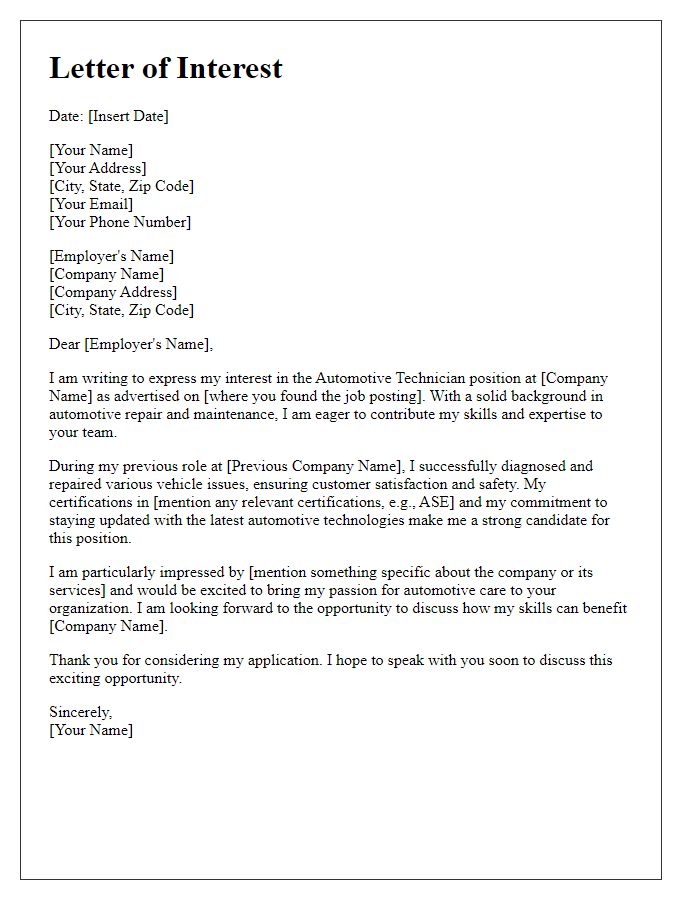
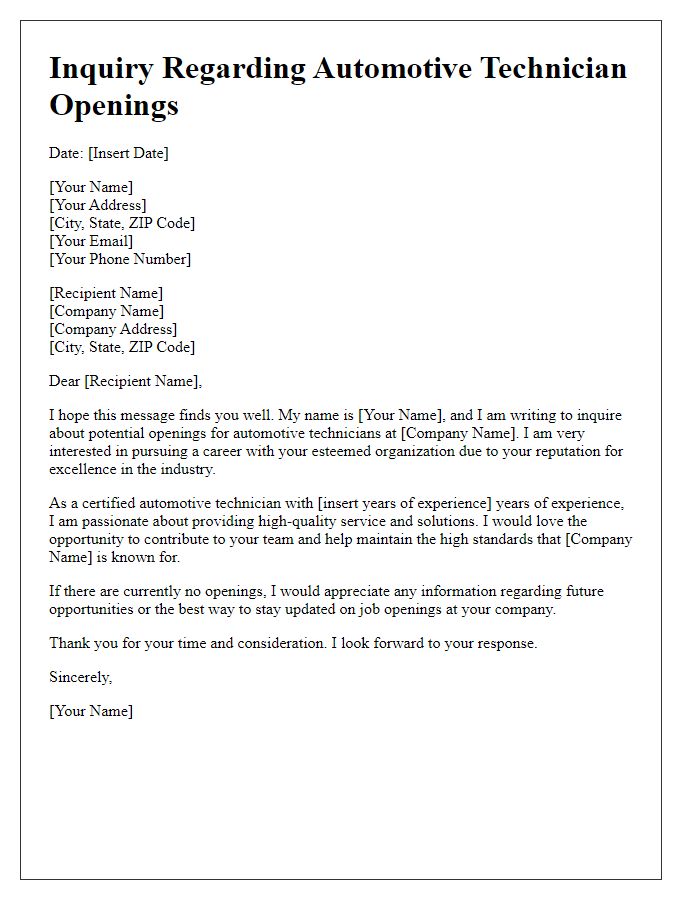



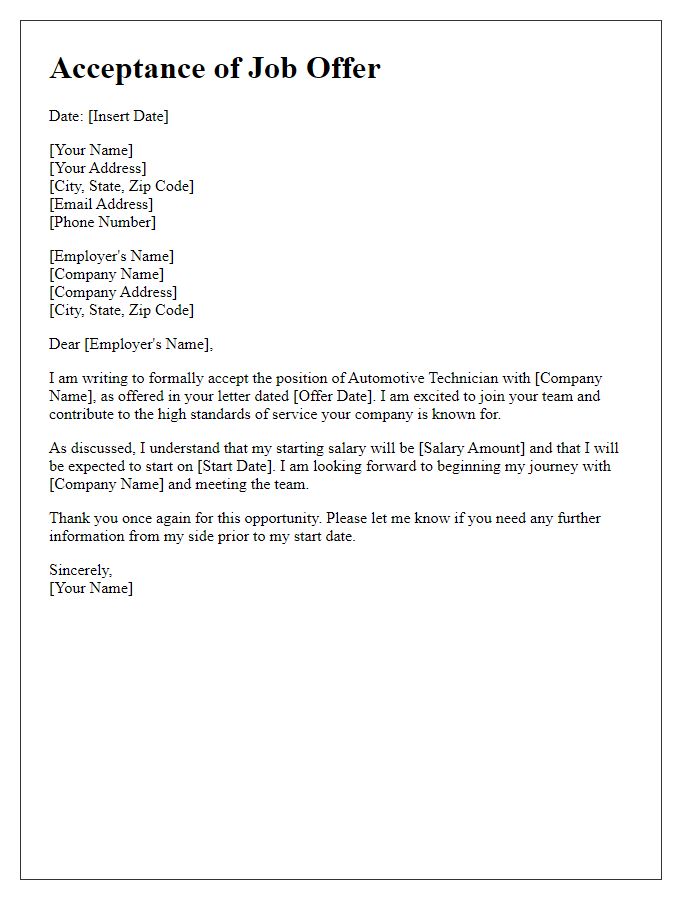
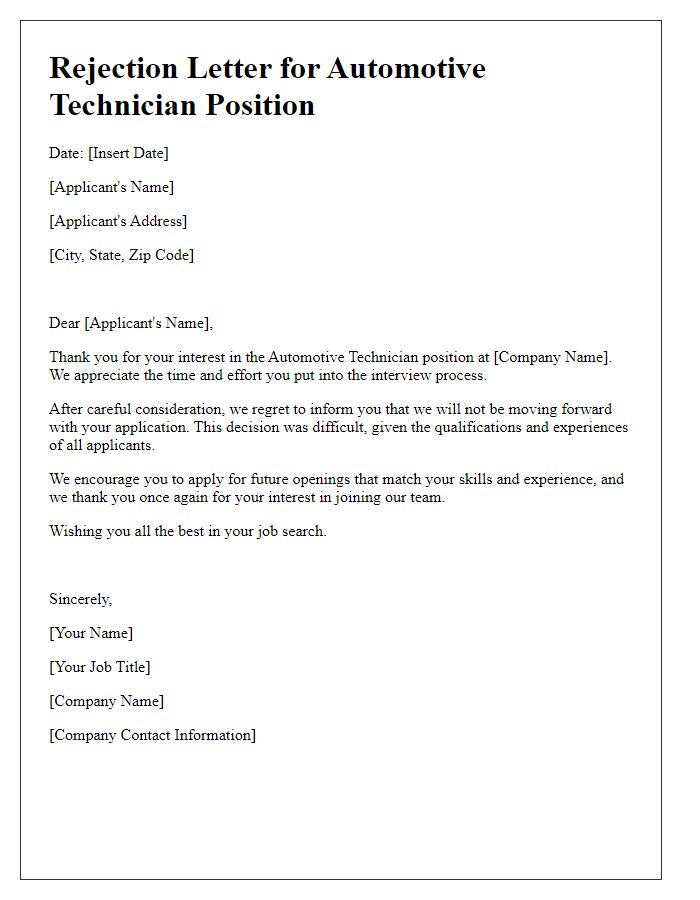

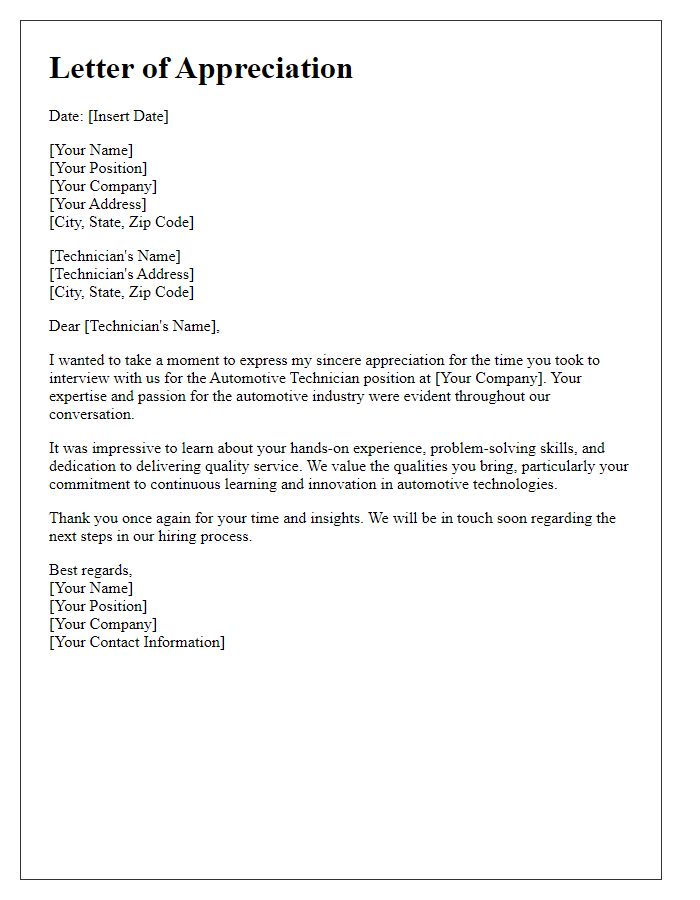


Comments